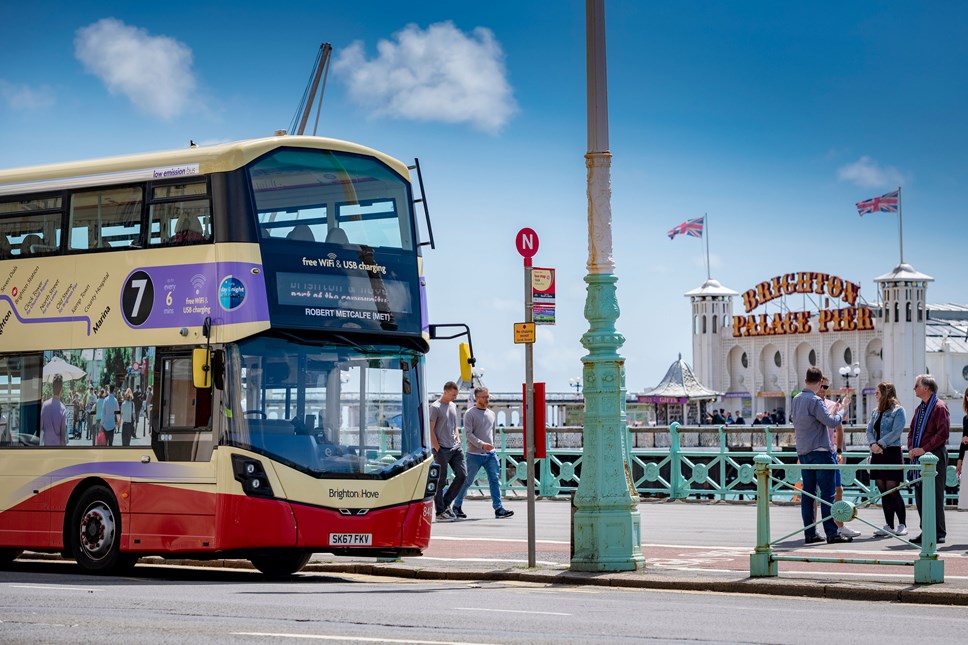
Commuters could gain more than 55 extra hours of sleep annually if it weren’t for traffic jams
The true impact of traffic congestion on quality of life has been revealed by a new poll showing that commuters leave home an average of 13 minutes early every day to allow for jams on Britain’s roads.
A study by polling agency Walnut Unlimited commissioned by The Go-Ahead Group, one of the UK’s leading public transport operators, highlights the level of inconvenience suffered by road users from worsening traffic and slowing speeds.
- Commuters build in a 13 minute “traffic jam allowance” to their daily journey to work
- Nevertheless, four out of ten have been late for work in the last six months due to traffic jams
- A majority of the population favours more investment in public transport as a way to tackle road congestion
- For those travelling by bus, the “tipping point” of impatience is 20 minutes, 16 seconds
By building in a 13-minute buffer on every morning journey, commuters are missing out on an hour and five minutes extra sleep a week, or just over 55 hours’ free time annually.
Even with this buffer, many are still late – 40% of road commuters have been late for work over the last six months due to traffic jams, while 18% have been late for a family event. Perhaps the worst suffering are the one in 20 (4%) who admit to being late to a job interview thanks to a traffic jam.
Official figures show that traffic congestion is getting worse, with delays on A roads up by more than 10% since 2014[1]. Last year, the Centre for Economics and Business Research estimated that congestion would cost the British economy more than £300bn by 2030[i].
Martin Dean, MD of Bus Development at The Go-Ahead Group, said: “Traffic congestion causes frustration, anxiety and inconvenience. It hurts Britain’s productivity as well as affecting quality of life.
“Public transport can be a part of the solution to that problem – a fully loaded double decker bus can take as many as 75 private cars off the road, easing congestion and improving air quality. Yet unfortunately we’re seeing many local authorities cutting back on funding for local buses as they face a budget squeeze.
“This study shows the true impact traffic jams have on peoples’ lives. It’s in everybody’s interests to get the country moving more quickly.”
Congestion affects those who travel by bus as well as those who drive. Go-Ahead’s research finds that the typical bus passenger hits a tipping point of impatience after 20 minutes, 16 seconds in stationary traffic, prompting them to get off and walk.
Asked what should be done to improve speeds on the roads, 51% of respondents advocated more investment in public transport, while 30% backed workplace incentives to subsidise bus travel. Only one in five (22%) suggested building more roads.
Notes to editors
About Go-Ahead
Go-Ahead is a leading UK public transport operator, providing high quality services in the bus and rail sectors. Employing around 27,000 people across the country, over one billion passenger journeys are undertaken on our services each year. We are committed to operating our companies in a safe, socially and environmentally responsible way and are proud to have been accredited with triple Carbon Trust Standard for reductions in carbon, water and waste. In addition to the travelling public, our customers include the Department for Transport, Transport for London (TfL) and local authorities.
Bus
Go-Ahead is one of the UK’s largest bus operators. With a fleet of around 5,200 buses, we carry over two million passengers every day. Our operations are focused on high density commuter markets. We have a strong presence in London, with around 24 per cent market share, where we provide regulated services for TfL. Outside London, we operate services in Oxford, East Anglia, the South East, Southern and north east England. In September 2016, the Group began operating a bus contract in Singapore, on behalf of the Land Transport Authority.
Rail
The rail operation, Govia, is 65 per cent owned by Go-Ahead and 35 per cent by Keolis. It is the largest rail operation in the UK, responsible for over 30 per cent of all UK passenger rail journeys through its rail franchises: GTR (Govia Thameslink Railway) and Southeastern.
